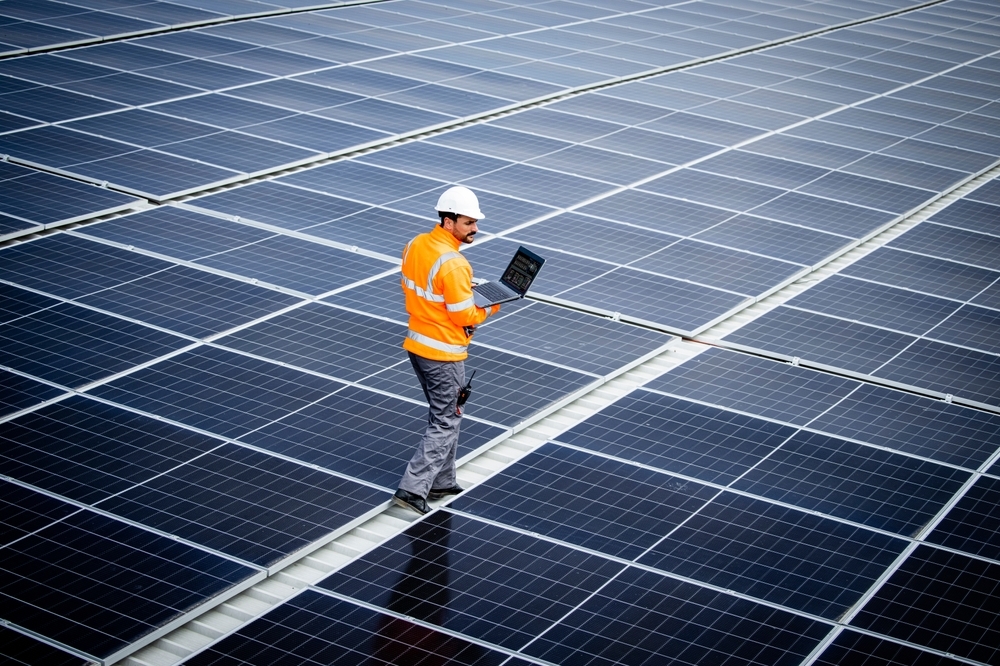Taichung Zero Waste Manufacturing Center launches

TSMC has marked a significant milestone in sustainable manufacturing with the inauguration of the Taichung Zero Waste Manufacturing Center.
During a recent ceremony, TSMC also signed a Memorandum of Understanding (MOU) on carbon capture with the Ministry of Environment. The event was attended by representatives from TSMC's green technology collaborators Chang Chun Petrochemical, Transcene, and Li Ying Environmental Technology, supply chain partners, academic institutions, industry associations, and the government.
TSMC strives to set the global standard in sustainability by leveraging innovative technologies to enhance resource recycling and strengthen environmental initiatives and doing so in harmony with Earth's ecosystems. The Taichung Zero Waste Manufacturing Center, the global semiconductor industry's leading integrated energy and resource recycling facility, also serves as TSMC's inaugural circular economy demonstration center.
The Taichung Zero Waste Manufacturing Center adheres to principles that maximize waste reduction and environmental benefits as well as minimize risk. It features four major recycling facilities: fluoride recycling, silica recycling, solvent thermal recovery, and isopropanol recovery. These facilities ensure proper disposal of waste resources. Since beginning trial operations in 2023, the center has successfully purified and recycled chemicals to meet the standards for recycled products. These chemicals are suitable for use in other industries and are being developed into electronic-grade quality for reuse in semiconductor processes, reducing the need for raw material extraction and pioneering a new model of the circular economy.
Operating at full capacity, the Taichung Zero Waste Manufacturing Center can reduce TSMC's outsourced waste processing by 130,000 metric tons each year, accounting for more than 85% of the total waste from TSMC facilities in Central Taiwan Science Park. According to Environmental Profit & Loss (EP&L) accounting, this reduction translates to a savings of around NT$1.5 billion in environmental costs per year. This includes a carbon reduction benefit of 40,000 metric tons, equivalent to the carbon offset of over 110 Daan Forest Parks.
In the pursuit of net-zero emissions, the Taichung Zero Waste Manufacturing Center has emerged as Taiwan's pioneering demonstration site for implementing membrane carbon capture technology. TSMC and the Ministry of Environment have signed a memorandum of understanding to jointly develop this technology, which will be introduced into general waste thermal treatment (incineration) facilities. This innovative carbon reduction approach aims to enhance and expand sustainable impact.
"For TSMC, driving a circular economy is not just a responsibility but an opportunity,” said TSMC Senior Vice President and Co-Chief Operating Officer, Y.P. Chyn. “As a global leader in semiconductor manufacturing, we recognize our mission in environmental protection and resource management. Through the Taichung Zero Waste Manufacturing Center, we aim to inspire industries to prioritize and invest in the circular economy, accelerating development momentum to create a better planet for future generations."
"In addition to deepening our blueprint for advanced technology, TSMC is actively fulfilling its sustainability commitments,” said Senior Vice President and ESG Committee Chairperson, Lora Ho. “In response to the resolution of the 28th United Nations Climate Change Conference (COP 28) to transition away from fossil fuels, we are dedicated to integrating technology with sustainable development through our Zero Waste Manufacturing Center initiative. We aim to collaborate with stakeholders to achieve mutual prosperity and growth."
TSMC is committed to sustainability through tangible initiatives. The Taichung Zero Waste Manufacturing Center features eco-friendly design elements, such as rainwater recycling systems and solar power installations. The company plans to replicate this successful model at other domestic and international locations, aligning with the United Nations' 12th Sustainable Development Goal (SDG) and enhancing its positive ESG impact.

































